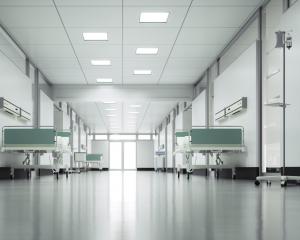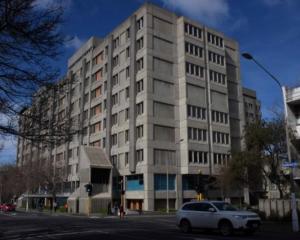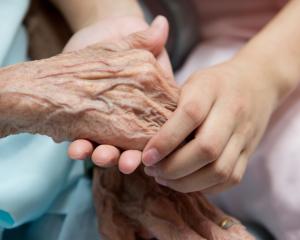Should some patients receiving care in Otago and Southland district health board hospitals have the option of paying for extra specialised treatments which are not publicly funded?
That is the question being asked in a consultation document called "Bridging the Gap" which has appeared without prior publicity on the two boards' websites.
The document says though a wide range of treatments and medicines was available, many treatments were available internationally, which were not publicly funded.
The Otago board's chief operating officer, Vivian Blake, said the issue had arisen about eight months ago when a consultant approached her as to whether public cancer patients could pay for extra treatment.
Her response was that this was not possible under the existing system, but she would investigate it.
The matter had been considered in closed sessions by both the hospital advisory committee and the board as "we had absolutely no idea where it would go and whether the board was OK with me taking it further".
When she raised the matter with the ministry she was advised it would be necessary to consult both staff and the public on the issue and that was what was happening.
In some instances, consultants who began treating patients in public in Dunedin might have to then refer them to private hospitals elsewhere which could affect their continuity of care, which was not ideal for the patient.
Mrs Blake said the consultation was open until February 2.
Under a section on disadvantages, the document states it is important for the hospital's priority to be providing publicly funded health-care services and that provision of extra treatments did not affect the care of patients receiving already available treatments.
The document says this type of treatment would be different from private hospital care because patients would only be paying for the extra treatment rather than their entire care.
Some treatments which might be considered would be too complex to be provided in a private hospital locally, which meant that patients would otherwise have to travel to other main centres to receive ongoing care.
Little information is given about the type of treatment apart from a statement that it would be limited and specialised and might include medications for particular types of cancer which might not have responded to the standard treatment available.
The number of patients who might be involved was expected to be small, but Mrs Blake said it would be difficult to estimate at this stage.
If extra treatment was offered, it would not have negative effects on patients in the hospital, the document says.
Care of patients not receiving the treatments would not be affected or changed.
She expected the results of the consultation would go before the boards at their March meetings.











